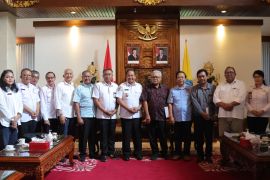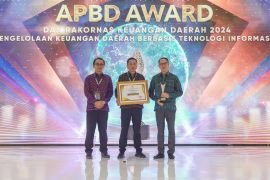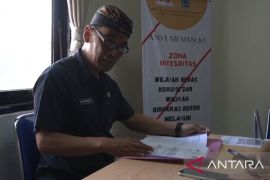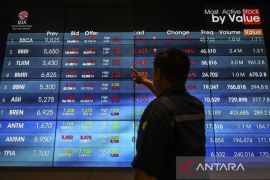Jakarta (Antara Bali) - Deputy Energy and Mineral Resources (ESDM) Minister Arcandra Tahar said the biggest challenge faced by the country's oil and gas industry lies in technology.
"Indonesia's oil wells have been too old and less productive. In order to increase their productivity they need high technology. Do we have it?" Arcandra said in a discussion on Oil and Gas Outlook in 2017 here on Monday.
Arcandra also said it is also not yet known where the remaining oil and gas reserves are located as there is no technology that could precisely detect the locations.
The complexity of technological problem makes the oil and gas explorations expensive, he said, adding adequate technology is still needed despite the availability of skilled human resources.
Technology improves efficiency in oil and gas production. One solution is by forming partnership with the private sector or foreign investors who have the necessary technology, he added.
The gross split method is a solution to problem on production efficiency, by abandoning the cost recovery scheme. Gross split method could scrap state budget sharing as sharing is in line with the function and performance of each side.
Currently, cost recovery scheme is still adopted in production sharing contract (PSC) between the state and the contractors. PSC is calculated after the operating cost is covered from the production.
Meanwhile, ESDM Minister Ignasius Jonan said oil and gas industry would focus on improving production efficiency.
"Until now production is not efficient. Therefore, the policy in the oil and gas sector ahead is focused on efficiency in production," Jonan said addressing the same discussion.
The reason for focusing on production efficiency is that the uncertainty in oil price , Jonan said, adding, Indonesian oil and gas industry should learn more to be more competitive and understand the market.
Earlier Jonan said the country would adopt the gross split concept in place of production sharing contract in the oil and gas industry next year.
Under Energy and Mineral Resources Ministry Regulation No. 38/2015, there are three types of cooperation contracts for non-conventional oil and gas operations. They are Production Sharing Contract (PSC), Sliding Scale Production Sharing Contract (Sliding Scale PSC), and Gross Split Sliding Scale Production Sharing Contract (Gross Split Sliding Scale PSC).
PSC concept is a common concept currently applied in Indonesia. Under the current profit sharing system, the government and contractors¿ revenue share is split after subtracting recovery costs.
A Sliding Scale PSC is a form of contract with progressive production sharing based on annual cumulative production with an operational cost recovery mechanism, while a Gross Split Sliding Scale PSC involves the sharing of progressive gross production based on annual production without a cost recovery mechanism.
According to Jonan, the decision to amend the PSC scheme is in line with the government¿s drive to boost investment in the sector and make permit more efficient and simple.
He said the new planned scheme will only be applied to the new oil and gas contracts.
We will try to implement the gross split. Therefore, we may no need to continue to debate on cost recovery. In addition, the gross split mechanism will not burden the State Budget every year,¿ he said. It will depend on the operators to determine the efficient expenditure of the projects.
The gross split concept will still require oil and gas companies to comply with local content (TKDN) content as well as the deployment of national workers. (WDY)









